Schoolshistory.org.uk
History resources, stories and news. Author: Dan Moorhouse


Voyages of Discovery – Elizabethan Explorers
Voyages of discovery.
The Elizabethan period was one in which the major European powers were engaged in many voyages of discovery. The discovery of the Americas had opened up new lands to explore. There was a desire to find faster, more economical, routes to the far east. Explorers became famous and their work has had a lasting legacy.
The Elizabethan period came as exploration of the seas and New World was emerging as one of great importance. For centuries Europe had traded with the far east, though through middle-men. The discovery of the Americas and then the first circumnavigation of the globe made exploration of economic importance. Now it was known that ships could travel around the globe, the race was on to find the fastest routes and discover new lands.
The Spanish and Portuguese empires were the first to colonise the New World of the Americas. Following this the Dutch, French and English sought to explore themselves. North America offered the Elizabethans several things. First, it was unsettled land. No Europeans had colonised it as yet. Elizabeth’s court granted Sir Walter Raleigh the rights to colonise. This attempt at a first North American Colony can be read here .
North America also offered hope. If it was possible to sail around the toe of South America, was the same true of the North? Could shipping make its way through river systems and emerge on the other side of the New World? If either of these were possible, it would speed up trade with Asia.
Searches for the Northern Passages
1497 John Cabot discovered Newfoundland
1553 Sir Henry Willoughby sets sail with 3 ships in search of a Northeast Passage. Only one ship survives, making contact with the Muscovite court of Ivan the Terrible having reached the port of Archangel.
1555 Richard Chancellor, who had sailed under Willoughby, returns to Russia and establishes the Muscovy Company.
1576 Sir Martin Frobisher sets sail in search of a Northwest passage. He fails to find one, landing instead in Greenland and Canada.
1585 John Davies uses Greenland as a stepping stone into the Northern seas. He fails to find a passage through but sails further north than any other Englishman had done previously.
At the same time as these men were sailing in search of a Northern Passage, people continued to seek out new lands. In 1577, Sir Francis Drake set sail. He was searching for new lands in the Southern Oceans. On his voyage he plundered gold from the Spanish. His voyage led him to becoming the first Englishman to circumnavigate the globe. He returned to England and fame in 1580.
North America
1583 Newfoundland was claimed for England by Gilbert.
Raleigh was commissioned to establish a colony in North America. This was attempted by Sir Humphrey Gilbert, on Raleigh’s behalf, at Roanoke Island . The first colony was started in 1585. This was abandoned the following year. In 1587 a further 117 colonists were sent to reestablish the colony. Among these settlers was Elizabeth Dare, who gave birth to the first English child born in the Americas. This colony vanished without trace though, an English ship visited in 1591 and found the site abandoned.
Colonisation of the Americas was delayed due to the Spanish Armada . It resumed following the English victory.
Africa and the Slave Trade
In 1562 John Hawkins began a trade that is now thought of as horrific and inhumane. Hawkins realised that he could profit from triangular trading. He bought or captured native Africans. Then he sailed to Spanish colonies and sold them as slaves. The Spanish needed workers, Hawkins could provide them. From the New World he could return to England with goods that would reach a high price. With the three stopping points this became known as triangular trade and continued until the abolition of slavery in the British Empire in 1807. The trade did cause some friction with the Spanish and was sometimes linked with the privateers.
Northern Europe
In 1598 the Baltic Sea became open to British shipping. Prior to this a monopoly on trade had existed with only the Hanseatic League able to trade there. With the league losing their monopoly, the ships of British merchats could enter the Baltic and trade.
Principles of Colonisation
Richard Hakluyt wrote several pieces on the principles of colonisation. These were presented to influential people such as Sir Walter Raleigh. His work spanned the reigns of Elizabeth and James I. It was his book, The Principal Navigations, Voyages and Discoveries of the English Nation (1589), that influenced the development of Virginia.
British History – Elizabethan Era – Tudors (KS2)
British Library – Exploration and Trade in Elizabethan England
BBC – Revision guide, explorers
Encyclopedia.com – Elizabethan explorers and colonisers
- 37480 Share on Facebook
- 2374 Share on Twitter
- 6827 Share on Pinterest
- 2961 Share on LinkedIn
- 5429 Share on Email

Subscribe to our Free Newsletter, Complete with Exclusive History Content
Thanks, I’m not interested
Elizabethan Explorers
- Interesting Facts and information about English Elizabethan Explorers
- Famous English Elizabethan explorers
- Sir Francis Drake & Sir Walter Raleigh
- Sir Humphrey Gilbert & Sir John Hawkins
- Sir Richard Grenville & Sir Martin Frobisher
The answers to this question and all your GCSE/iGCSE history topics is only a click away.
Download our FREE app for Android and iOS .
The Age of Discovery
- ❖ England was seeking new trade partners in the Far East, such as India and China .
- ❖ Elizabeth wanted to be seen as powerful and exploration would boost her image.
- ❖ There had been drastic improvements in technology, which made navigation easier and ships better.
- ❖ Europeans were interested in overseas culture and goods.
- ❖ The Renaissance era led to an increase in scientific curiosity.
- ❖ The Age of Discovery increased England's position as a global superpower.
- ❖ Drake and other privateers ' actions helped to improve the English economy as any treasure taken had to be shared with the queen.
- ❖ England's empire was expanding due to colonisation.
- ❖ It led to improved geographical knowledge of the world.
- ❖ Trade links were established with new countries.
- ❖ Ships at this time were built with new lateen (triangular) sails which made them faster and easier to steer.
- ❖ The astrolabe allowed sailors to judge how far north or south they were, and compasses allowed for navigation to be more accurate.
- ❖ Better defensive weapons made sailing through enemy and hostile waters much safer.
Welcome to Clever Lili!
Turbocharge your history revision with our revolutionary new app! Clever Lili is here to help you ace your exams.
Enhanced Learning
Study guides, android and ios app, alexa and google home, ask question in facebook messenger, gcse history.
A text and voice app that allows you to easily revise for your GCSE/IGCSE exams wherever you are. Whether you’re at home or on the bus, GCSE History provides you with thousands of convenient bite-sized facts to help you pass your exams with flying colours. Great for student and teachers.
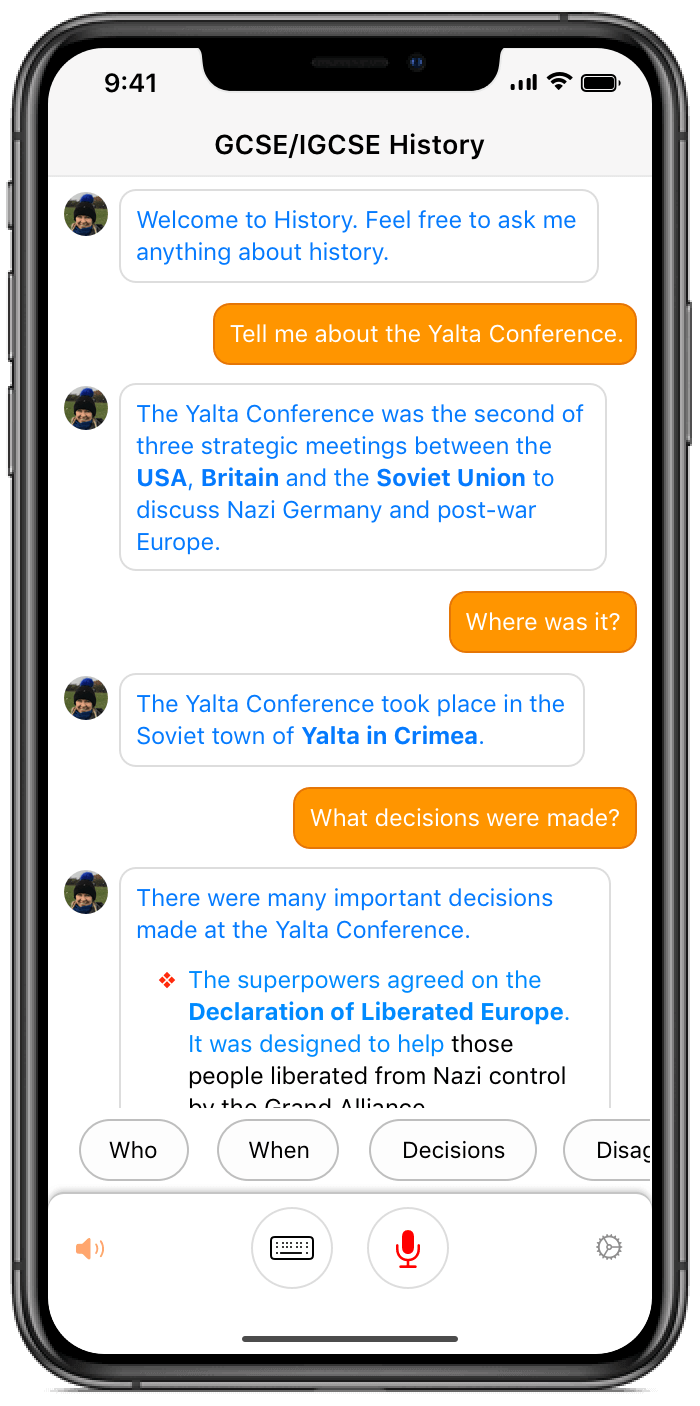
Greatbritainmighty.com
A Time Traveler’s Guide To Elizabethan England
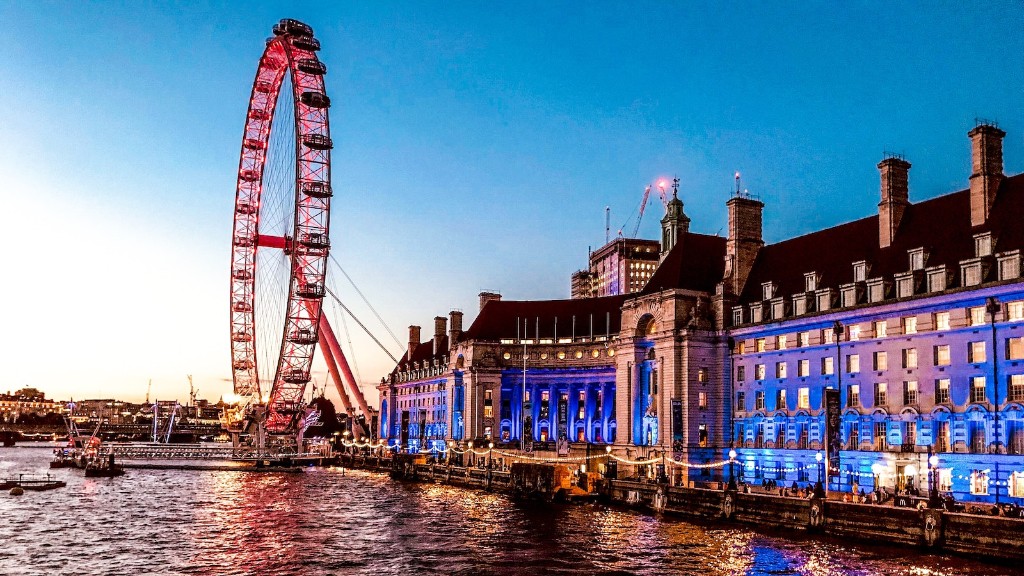
What would life in Elizabethan England have been like if one travelled back in time? Visiting a bygone era gives one an insight into our collective past. The reign of Queen Elizabeth I was a time of exploration, discovery and cultural development. To this day, Elizabethan England is considered a vibrant and exciting period of history. It is a time when a vibrant navy, opulent courts and a flourishing economy imbued the nation with a sense of prosperity.
Voyages of Discovery
Elizabethan England was a time when great voyages of discovery were taking place. Sir Francis Drake sailed around the world in 1577-80. His voyage to the New World brought about a period of colonization by England and the expansion of the British Empire. Under the patronage of Queen Elizabeth I, English sailors circumnavigated the globe and set foot upon new lands. The voyages of discovery were not only for exploration, but also for trade. The spread of English trade to the Netherlands, Spain, and the Mediterranean regions, brought a great deal of wealth to the kingdom.
A Booming Economy
Elizabethan England was an age when a booming economy developed. This was largely the result of maritime trade with foreign countries. The monarchy’s coffers were further filled with gold and silver from the New World. These riches buoyed the economy and enabled the government to purchase goods from foreign countries. This led to the growth of English manufacturers who produced goods for the domestic market. Wool, leather, and metal were produced in English towns and cities. The 16th century saw a proliferation of guilds and monopoly trading companies such as The Company of Merchant Adventurers and The England Company.
The Arts and Literature
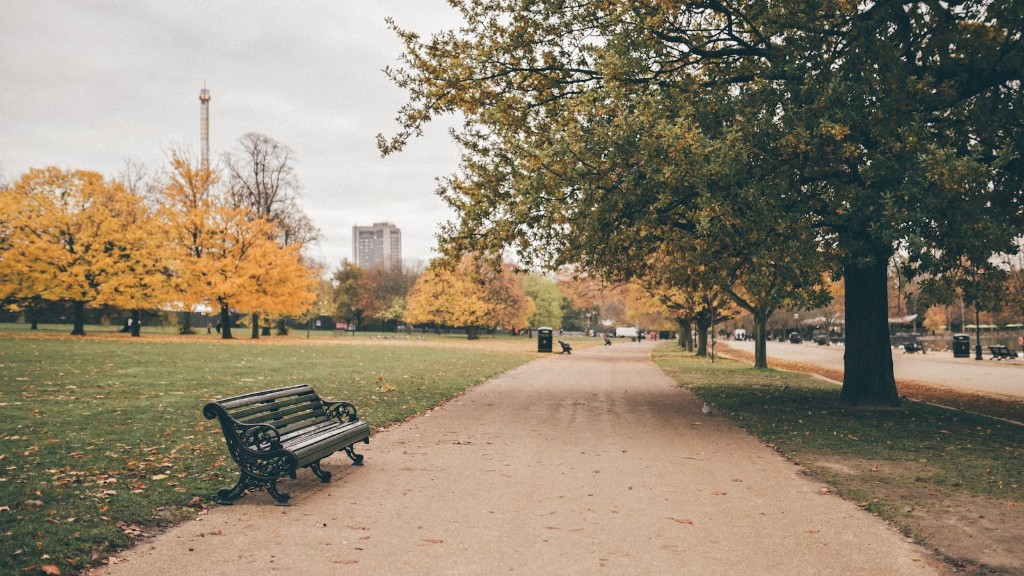
Elizabethan England can also be noted for its contributions to the arts and literature. William Shakespeare’s works are renowned as some of the finest examples of Elizabethan literature. During this period, literature and the arts flourished. Shortly before Elizabeth’s accession, John Heywood wrote his ‘Interludes’ and Thomas Nashe wrote ‘Pierce Peniles complaining into his Lady’. Theatre, as we now know it, had its beginnings during Elizabeth’s reign. The popularity of the theatre was at its zenith between 1576 and 1594.
A Vivacious Court
Elizabethan England was a period of great opulence. The Queen held court at her palaces in London and in Kent. The royal court was always bustling with music, dancing and jousting. Spectacular feasts and banquets were an integral part of court life and often attended by illustrious guests from the continent.
Religion in Elizabethan England
During Elizabeth I’s reign, the Church of England became the official state religion. Prior to Elizabeth’s accession, the nation was divided between Catholics and Protestants. Elizabeth was determined to keep the nation united and instituted a policy of religious tolerance. The Church of England was not as strict as the medieval Catholic Church and allowed for some reforms, such as the celebration of Christmas.
Social Structure and Class Structure
Elizabethan England was clearly a hierarchical society. At the top were the nobility and the ruling class, followed by the wealthy merchants and gentry. Beneath them were the labourers, the apprentices and servants. There was a clear class structure that was closely tied to one’s economic standing.
Fashion and Clothing
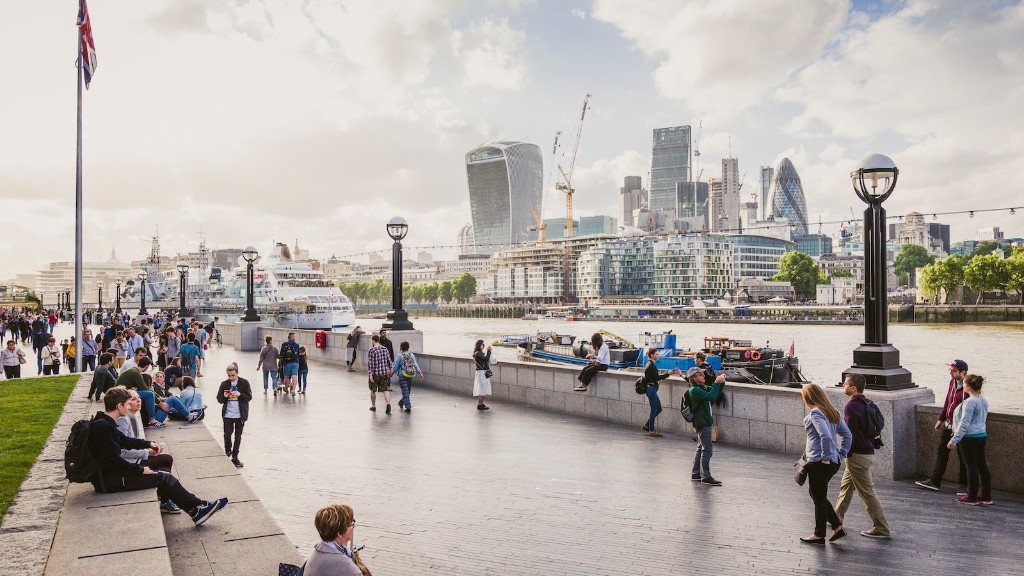
Fashion and clothing in Elizabethan England was extravagant and opulent. Men and women alike wore extravagantly decorated clothes. Brightly coloured fabrics were the height of fashion in this period. Sumptuary laws were enacted to restrict the wearing of expensive textiles. Men wore doublets, breeches and hose; women favoured gowns and farthingales.
The Royal Navy
The Royal Navy played an important role during Elizabethan England. Queen Elizabeth I worked hard to build up the fleet and construct a powerful navy to protect the nation from threat. The Elizabethan navy was one of the most powerful in the world at the time. Sir Francis Drake and Sir Walter Raleigh were among the most renowned members of the navy.
Society and Law
Society in Elizabethan England was strictly regulated and an elaborate legal framework was put in place. The nation was divided into counties, and the lord of each county was responsible for the order and justice within his jurisdiction. Capital crimes such as murder, treason and witchcraft were punishable by death. Petty crimes were dealt with in the court of the Lord Lieutenant.
Religion and Education
The Elizabethan era saw an emphasis on education and religion. Education became mandatory for all children in the kingdom. Emphasis was placed on teaching Latin grammar and rhetoric, as well as the Protestant faith. The universities of Oxford and Cambridge were both founded in this period and had great influence on the intellectual life of the nation.
Education and Science

The Elizabethan period saw a proliferation of scientific thinking and discovery. William Gilbert was a pioneering scientist who wrote An Experiment of Magnetic Bodies and the Great Magnet of the Earth in 1600. This work argued that Earth had an internal magnetic field and that it was not a static planet. Michael Drayton wrote one of the first scientific works in English, Poly-Olbion, which explored the physical geography of England.
Architecture and Music
Architecture saw great advancements during Elizabethan England. Brickwork, slate roofs and glazed windows were among the many advances in this period. Instrumental music was also popular. The lute was among the favored instruments. Singing was also popular, with groups of musicians performing madrigals to entertain the court.

Margaret Hanson
Margaret R. Hanson is a journalist and writer from the United Kingdom. She has been writing about the UK for over a decade, covering topics such as politics, current affairs, and culture. Margaret is committed to producing work that is engaging, informative, and thought-provoking.
Leave a Comment Cancel reply

Early Elizabethan England – Why did England want to send voyages of exploration?

Using the video link – start at 8.40 minutes Match the key feature to the correct detail on the table. Copy out a correct version of the table. Start by linking the feature and fact.
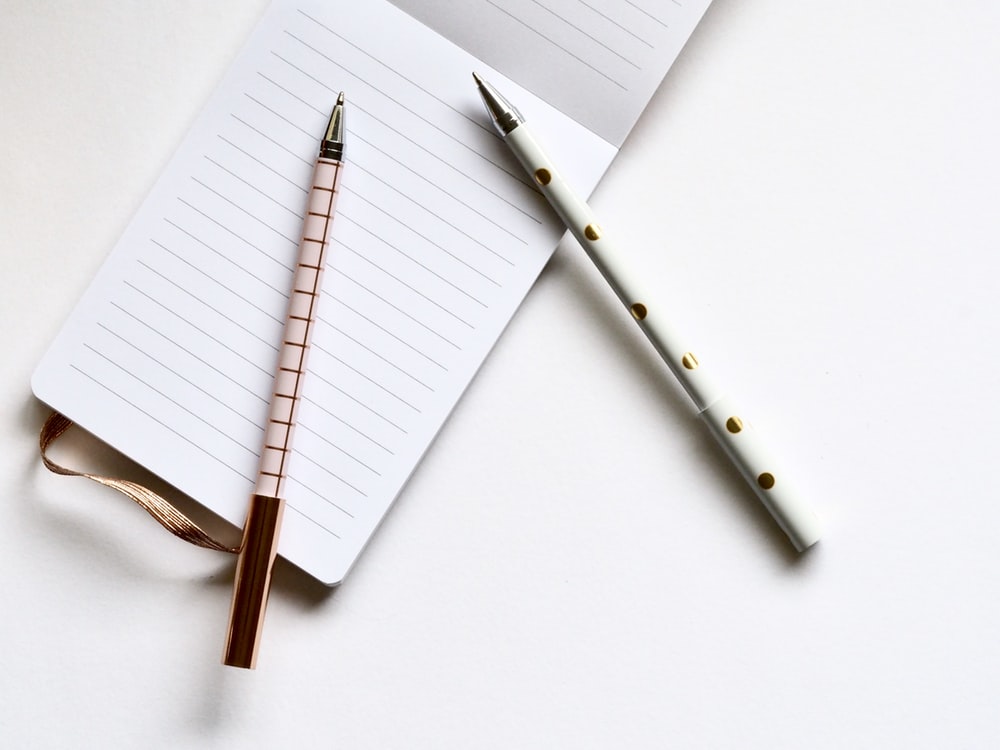
GCSE style question
Explain why voyages of explo r ation took place during the Elizabethan era. [12 marks] To attain full marks on this question you need to write three detailed reasons.
Below a candidate has written an excellent first paragraph. They used PEEL to structure their answer making it easy to understand and follow. Identify where the candidate used the different parts of PEEL. Do not write this down and check your answers at the end. * Point – opened the paragraph with a big point linked to the question. * Evidence – used specific evidence. * Explanation – explained how the evidence links to the question. * Link – ended the paragraph with a link to the next point.
P: T he main reason why the Elizabethans took part in voyages of exploration was to establish new t rade links. E: The main export from England had been wool. It made up 75% of all business and was traded via the Netherlands. This important trade route collapsed when England’s enemy, Spain, closed off Antwerp to English traders. E: This forced the English to find new markets to sell and trade products with. Funded by the upper classes who were keen to make a quick profit voyages were launched to find new trading routes. They were successful and led to the establishment of links with nations further away, such as India . L: Success motivated more voyages as investors saw the opportunity for greater profits.
Explain why voyages of exploration took place during the Elizabethan era. [12 marks] Write the following paragraph. HINTS: * The next paragraph would focus on money. * Use points from the table above – use details from Spain / role of individuals / money * Follow the PEEL structure.
Well done you have completed your learning for today
Want to learn more? Grades 9 – 7
Explore the work and ideas of Richard Hakluyt who wrote The Principal Navigations, Voyages, Traffiques, and Discoveries of the English Nation (second edition, 1598–1600). It has been identified as one of the most important collection of English travel writing ever published. http://www.hakluyt.org/the-edition/
Explore the voyages of John Hawkins The National Archives: https://www.nationalarchives.gov.uk/pathways/blackhistory/early_times/adventurers.htm The Royal Museum Greenwich: https://www.rmg.co.uk/discover/explore/sir-john-hawkins
History of Britain from Roman times to Restoration era
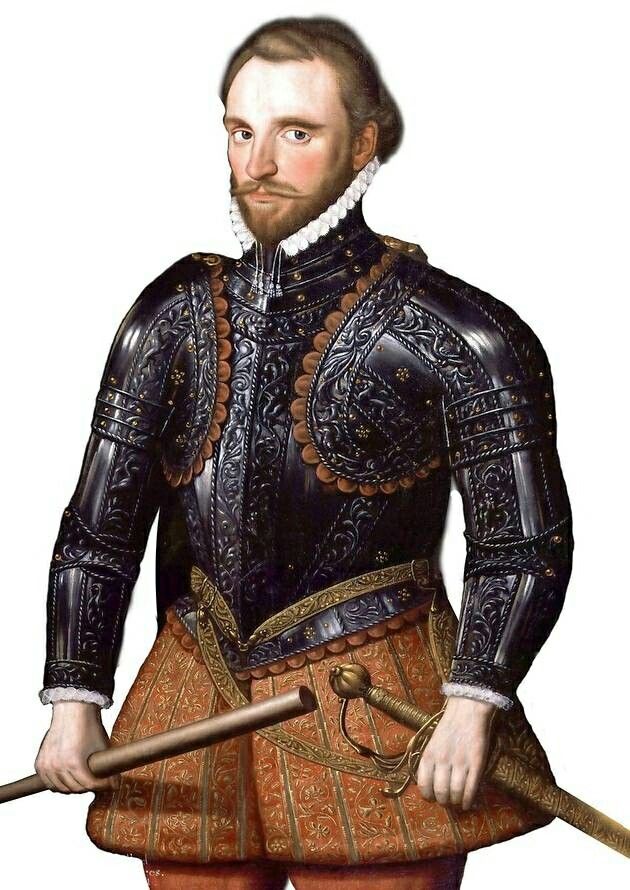
Famous British Explorers
There were various explorers from Great Britain during the 15th and 16th centuries. They were credited with various achievements. Exploring new countries was one of the most common practices during those times.
This was because of a variety of reasons. These explorers opened new chapters of trade and commerce between different countries throughout the world. Exploring new countries had its advantages as well as disadvantages. Some of them led to colonialism in countries of Asia and Africa too.
The famous English explorers were referred to as pirates and privateers by their enemies. The most famous English explorers embarked on their voyages of discovery during the Elizabethan reign of Queen Elizabeth I . The Elizabethan age produced some of the greatest explorers in Britain. Therefore, they were also called ‘ Elizabethan Explorers ‘
Some of the famous English explorers
Sir Walter Raleigh , Sir Francis Drake , Sir Martin Frobisher and Sir John Hawkins , Samuel de Champlain , Sir Francis Drake , Henry Hudson , Sir Richard Francis Burton, James Cook, Allan Cunningham etc. However, this list is not exhaustive because there was an endless number of explorers. Some of the few explorers are explained below:
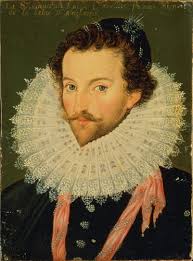
SIR WALTER RALEIGH
Sir Walter Raleigh was born in 1552. He lived till 1618. He became famous for the Discovery of Guiana and establishing the Virginia colony of Roanoke Island in 1584. In 1585, he established the Roanoke colony.

What did Sir Walter Raleigh do?
Sir Walter Raleigh was an explorer as well politician. He devised several naval explorations for England in the 16th century and defeated the defeated Spanish Armada.
How many voyages did Sir Walter Raleigh go on?
It is unknown exactly how many voyages Walter Raleigh himself went on, but he funded and devised three voyages to Roanoke Islands.
Why was Sir Walter Raleigh executed?
Sir Walter Raleigh was accused of treason and beheaded.
Sir Humphrey Gilbert
Sir Humphrey Gilbert lived from 1539 to 1583 and was a British soldier and navigator who was the man behind many daring explorations and overseas colonisation. He succeeded in annexing Newfoundland. Gilbert studied navigation and military and was sent to various places by the Queen including Ireland.
FRANCIS DRAKE
Francis Drake lived from 1545 to 1596. As a British explorer, slave-trader, privateer (a pirate working for a government) in the service of England, mayor of Plymouth, England, and naval officer. He led the second expedition to sail around the world in a voyage lasting from 1577 to 1580, the first person to lead the voyage being Magellan.
What was Sir Francis Drake famous for?
Drake was famous for several reasons along with circumnavigation of the world. He had also defeated the Spanish armada in an operation in which he was the vice-admiral commander.
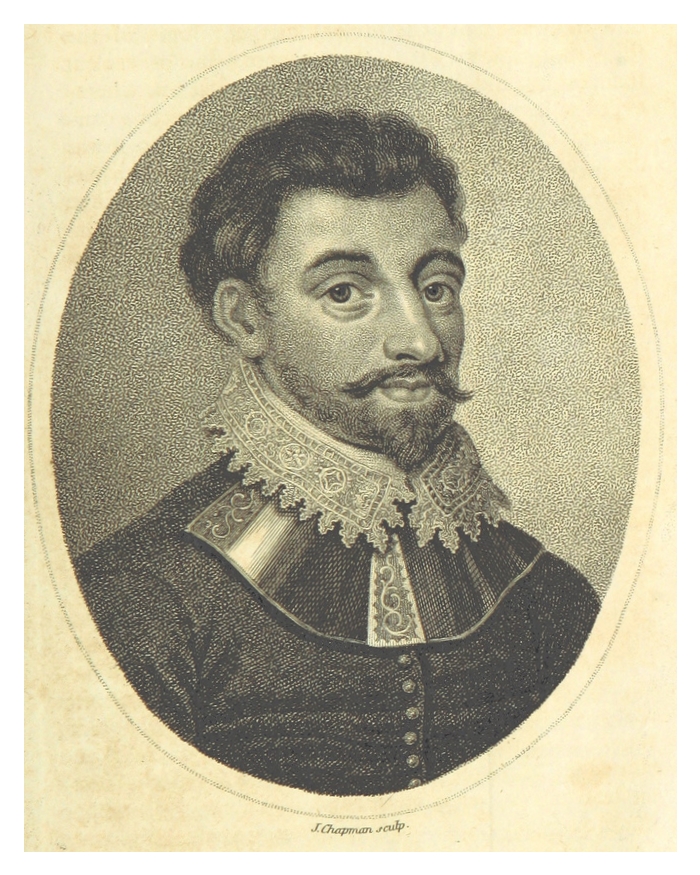
JOHN HAWKINGS
John Hawkings who was born in 1532 was an English naval officer, slave trader, privateer. He was also a cousin of Sir Francis Drake. He was the first slave trader supported in his voyage by Queen Elizabeth. Hawkins died on Nov. 12, 1595.
HENRY HUDSON
Henry Hudson was an English explorer and navigator. He lived from 1565-1611 and explored parts of the Arctic Ocean and northeastern parts of North America. As a tribute to his greatness, the Hudson River, Hudson Strait, and Hudson Bay are named after him.
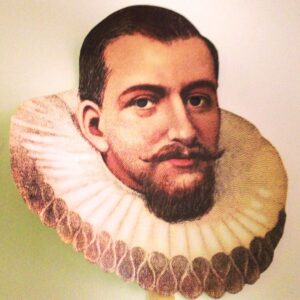
Richard Grenville
Sir Richard Grenville was one of the most powerful English naval commander who lived from 1542 to 1591. Apart from the heroic military operations devised by him, Sir Grenville also led a fleet of one hundred colonists to the Roanike Island, which is presently North Carolina. He also helped establish a plantation in the Irish province of Munster.
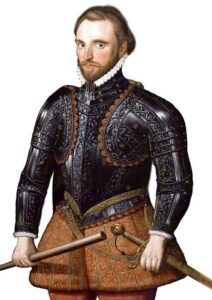
James Cook was a famous explorer, perhaps one of the most famous explorers who was also an astronomer. He was famous for expeditions to the Pacific Ocean, Antarctic, Arctic, and around the world. From 1768 to 1771, he led his first expedition. This was to observe Venus as it passed between the Earth and the Sun in order to try to determine the distance between the Earth and the Sun.
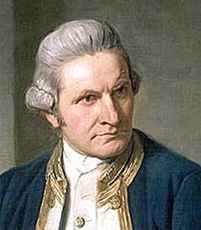
His second expedition was from 1772 to 1775 took him to Antarctica and to Easter Island on a voyage intended to show there was no large southern continent. From 1776-1779, a search for a Northwest Passage across northern North America to Asia – he searched from the Pacific Ocean side of the continent. Cook sailed from England on July 12, 1776, on the Resolution was his last expedition.
Elizabethan Privateers
Queen Elizabeth had developed a ‘supplementary navy’ in order to bring piracy on the seas under control. It was an age when Pirates and freebooters used to roam on the sea and had become unstoppable. They would plunder ships and kill people which resulted in great loss of English commerce.
A privateer was actually a merchant ship, privately owned and equipped at their own expense but was authorised by the Crown to raid the ships of the enemy. The things looted from the raided ships were then divided among the sailors and crew with a share of it given to the Crown.
Reasons for Explorations in the Elizabethan Era
Explorations in the Elizabethan age were undertaken due to various reasons. Trade and commerce was one of the reasons why Explorers were sent to the sea. The discovery of new lands helped the monarchy to establish new business relations or even colonising them.
Naval alliance was another reason why explorations were made. It also opened new routes to distant places which also helped to open and maintain new merchant fleets.
Elizabethan Ships
English ship of the 16th century England usually had three-masters and square canvas sails on the bowsprit, fore as well as main mass. To read more on English ships click on Famous Elizabethan Era Ships.
Elizabethan Explorers
Famous Italian Explorers
Famous European Explorers
History Sites
- Victorian Era
- Inca Mayan Aztec
- History of Music
- Persian Empires
- Byzantine Empires
- International
- Schools directory
- Resources Jobs Schools directory News Search

Elizabeth I's Voyages of Discovery
Subject: History
Age range: 14-16
Resource type: Lesson (complete)
Last updated
7 March 2023
- Share through email
- Share through twitter
- Share through linkedin
- Share through facebook
- Share through pinterest

Describe the impact of the voyages of exploration during the reign of Elizabeth I. Explain how and why the voyages of exploration had an impact on Elizabethan England. Lesson Objective: how far did Elizabeth I ensure East met West?
AQA GCSE History: British Depth Studies: Elizabethan England, c1568–c1603 - Life in Elizabethan Times. The resources are also suitable for Edexcel, OCR, WJEC GCSE History and iGCSE History.
The resources that I have created have helped my GCSE History classes to sustain outstanding results over a period of time:
2022 P8: +0.88 and +0.81 2021 P8: +1.42 2020 P8: +0.47 2019 P8: +0.57
My GCSE History classes have also consistently attained the most Grade 9s in any subject and/or class at my current school of over 1300 students.
In addition, this specific component’s outcomes - Elizabethan England, c1568–c1603 - are consistently above the national average according to AQA Enhanced Results Analysis.
I have worked for the examination boards for over 10 years and considering the recent developments within education, my resources are constantly amended and updated for students studying GCSE History. I have utilised feedback from students, fellow professionals, experienced colleagues and have used my own professional judgement to ensure that each resource will help you to teach quality history lessons to ensure that each student achieves their personal best.
I am proud that I am a ‘Gold’ TES Author, and this is recognised by the fact that my resources have been downloaded over half a million times by educators throughout the world.
Copyright Protection ©
Tes paid licence How can I reuse this?
Get this resource as part of a bundle and save up to 71%
A bundle is a package of resources grouped together to teach a particular topic, or a series of lessons, in one place.
Life in Elizabethan Times 1/2: Elizabethan England, c1568–c1603
Elizabethan England, c1568–c1603 - Life in Elizabethan Times. The resources are suitable for AQA, Edexcel, OCR, WJEC GCSE History and iGCSE History. • A ‘Golden Age’: living standards and fashions; growing prosperity and the rise of the gentry; the Elizabethan theatre and its achievements; attitudes to the theatre. • The poor: reasons for the increase in poverty; attitudes and responses to poverty; the reasons for government action and the seriousness of the problem. • English sailors: Hawkins and Drake; circumnavigation 1577–1580, voyages and trade; the role of Raleigh. Please note that due to the number of resources, this is one half of the unit. You can purchase the other half of this unit and other sections separately. Included within this bundle are the following complete lessons, revision guide and assessment: 01 - An English Renaissance 02 - The Elizabethan 'Golden Age' 03 - The Golden Age of Elizabethan Exploration 04 - Sir Francis Drake's Circumnavigation, 1577-1580 05 - Sir Walter Rayleigh and the Colonisation of Virginia 06 - The East and the New World - The Impact of Voyages and Trade on Elizabethan England 07 - Growing Prosperity - The Rise of the Gentry 08 - Elizabethan Architecture 09 - Hardwick Hall 10 - Life in Elizabethan Times: Assessment 11 - Life in Elizabethan Times: Revision Guide The resources that I have created have helped my GCSE History classes to sustain outstanding results over a period of time: 2022 P8: +0.88 and +0.81 2021 P8: +1.42 2020 P8: +0.47 2019 P8: +0.57 My GCSE History classes have also consistently attained the most Grade 9s in any subject and/or class at my current school of over 1300 students. In addition, this specific component’s outcomes - Elizabethan England, c1568–c1603 - are consistently above the national average according to AQA Enhanced Results Analysis. I have worked for the examination boards for over 10 years and considering the recent developments within education, my resources are constantly amended and updated for students studying GCSE History. I have utilised feedback from students, fellow professionals, experienced colleagues and have used my own professional judgement to ensure that each resource will help you to teach quality history lessons to ensure that each student achieves their personal best. I am proud that I am a ‘Gold’ TES Author, and this is recognised by the fact that my resources have been downloaded over half a million times by educators throughout the world. Copyright Protection ©
Your rating is required to reflect your happiness.
It's good to leave some feedback.
Something went wrong, please try again later.
This resource hasn't been reviewed yet
To ensure quality for our reviews, only customers who have purchased this resource can review it
Report this resource to let us know if it violates our terms and conditions. Our customer service team will review your report and will be in touch.
Not quite what you were looking for? Search by keyword to find the right resource:
Firefly needs a modern browser, so you may notice things look broken right now.
To get a better experience, try one of the supported browsers listed here.
- AQA Schemes of Work
- Past Papers
- Past Questions
- America 1840-95: how to answer Interpretations Quesions
- America 1840-95: how to answer questions 4,5 and 6
- America 1920-73
- Britain: Health and the People
- Conflict and Tension: how to answer the questions
- Elizabeth and Marriage
- Elizabethan Poor Laws/ Poverty
- Elizabethan Religion
- The Elizabethan Court and the Earl of Essex
Voyages of Discovery
- Example Answers
- Historic Environment 2023
- History Clinic
- Revision Guides
- Elizabethan England
- Extra notes Walter Raleigh.docx
- Voyages of Discovery Questions and answers.docx
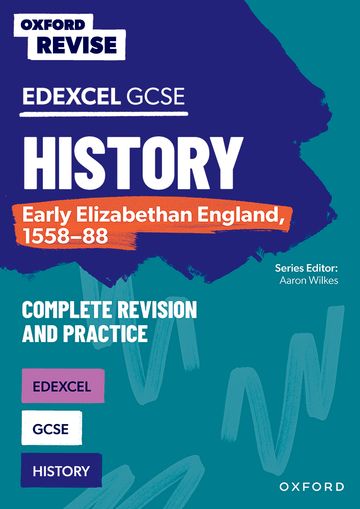
Oxford Revise Edexcel GCSE History: Early Elizabethan England, 1558-88
Learn everything you need to know about your British depth topic, Early Elizabethan England, 1558-88. You will cover all of the areas you need to do well in your Edexcel GCSE History exam.
ISBN-10: 1382040415
ISBN-13: 9781382040419
About Oxford Revise Edexcel GCSE History: Early Elizabethan England, 1558-88 revision guide
This revision guide will ensure you cover the full specification for this British depth topic for the GCSE Edexcel History exam.
All the key knowledge you need to know about Early Elizabethan England is clearly covered in one book. You will build your confidence for the exam for all topics, from Elizabeth’s accession to everyday life.
Contents list
History: Early Elizabethan England, 1558-88
- Elizabeth’s accession
- The religious settlement
- The problem of Mary, Queen of Scots
- Plot and revolts at home
- Education and leisure
- The problem of the poor
- Exploration and voyages of discovery
Edexcel GCSE History: Early Elizabethan England, 1558-88 Answers Page
Revise effectively with Oxford Revise
This guide covers every topic in the Edexcel GCSE History: Early Elizabethan England, 1558-88 course in depth, using clear, easy-to-understand language. Key terms boxes highlight the important words and language that you need to understand and help you to use them confidently. Revision tips give you quick ways to understand the core concepts and practice remembering them.
Each chapter has lots of exam-style questions for you to practice. These are designed to build your confidence, consolidate your knowledge and stretch your understanding. Exam tips show you how to interpret questions, what you need to do in your answers, and give you advice on how to get as many marks as possible.
The Oxford Revise approach
Oxford Revise uses a clear three-step method to get you ready for your exams.
Step 1: Knowledge – learn the facts Everything you need to know in each chapter is summarised in an easy-to-follow Knowledge Organiser.
Step 2: Retrieval – check you’ve retained the knowledge Quick-fire recall questions and answers make sure you have learned the knowledge you will need for your exams.
Step 3: Practice – complete questions in the style of the final exams Practice applying your knowledge and skills with plenty of exam-style questions, featuring hints and tips from revision and subject experts.
Our expert authors
Authors: Aaron Wilkes Sarah Hartsmith
About Aaron Wilkes
Aaron has over 25 years’ experience working in schools as a teacher, department, and faculty leader.
He also leads the PGCE Secondary History course at the University of Warwick and is published widely as a school textbook author, mainly for Oxford University Press.
Customer Reviews
Praise for Oxford Revise Really good revision book that is well laid-out, has concise summaries of each topic and a good range of practice questions. It seems to cover the entire syllabus, which is always important! Useful. Amazon review for a different book from the series
Absolute game changer! Science Teacher, UK Review for a different book from the series
Related Books
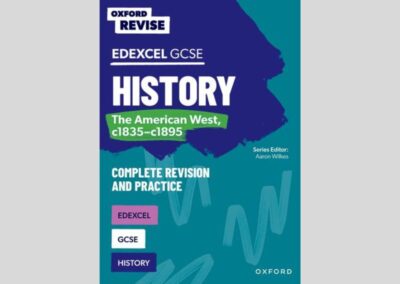
Oxford Revise Edexcel GCSE History: The American West, c1835-c1895
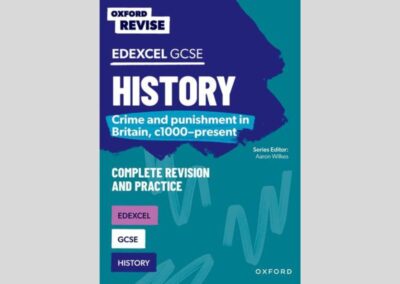
Oxford Revise Edexcel GCSE History: Crime and punishment in Britain, c1000-present
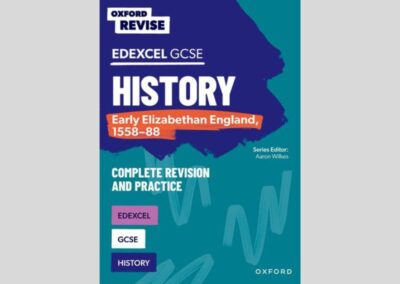
Oxford Revise Edexcel GCSE History: Medicine in Britain, c1250-present

IMAGES
VIDEO
COMMENTS
Voyages of Discovery The Elizabethan period was one in which the major European powers were engaged in many voyages of discovery. The discovery of the Americas had opened up new lands to explore. There was a desire to find faster, more economical, routes to the far east. ... He returned to England and fame in 1580. North America. 1583 ...
Learn about and revise what life was like in Elizabethan England with this BBC Bitesize History (AQA) study guide. ... His first voyage in 1566 was as a slave trader. He was attacked in 1568 by ...
Elizabeth's reign was a time of discovery as English ships travelled the world, exploring and trading. Under Elizabeth, England became a great naval power, and sowed the seeds of the British ...
Collection. by Mark Cartwright. published on 18 December 2020. The reign of Elizabeth I of England (1558-1603 CE) witnessed an extraordinary spurt of exploration as tiny wooden ships boldly set sail from English shores to cross the world's oceans. Famous mariners like Francis Drake, Martin Frobisher and Walter Raleigh combined geographical ...
The explorations and voyages of Sir Francis Drake were so profitable that, apart from the nobility, he was the richest man in England. Famous English Elizabethan Explorers and their Voyages of Discovery. The English Elizabethan explorers encroached on the territories of Portugal and Spain on the following famous voyages of discovery:
Francis Drake's circumnavigation, also known as Drake's Raiding Expedition, was an important historical maritime event that took place between 15 December 1577 and 26 September 1580.The expedition was authorised by Queen Elizabeth I and consisted of five ships led by Francis Drake.Termed a 'voyage of discovery', it was in effect an ambitious covert raiding voyage and the start of England's ...
The main motive behind the explorations in the Elizabethan era was to open profitable trading routes. Elizabethan era, therefore, was the golden age of exploration. Elizabethan age of exploration was first dominated by the Portuguese and the Spanish, but, after the great historic voyage by Sir Francis Drake, the dominance of English men increased.
4 marks. Answers: One feature that motivated exploration between 1558 and 1588 was the pursuit of wealth (1). Elizabethans wanted to explore more areas of America to find precious metals and crops to sell back in England (1). Another feature that motivated exploration between 1558 and 1588 was discovering new naval routes (1).
There were many reasons for the expansion of Elizabethan exploration. England was seeking new trade partners in the Far East, such as India and China. Elizabeth wanted to be seen as powerful and exploration would boost her image. There had been drastic improvements in technology, which made navigation easier and ships better.
European exploration - Age of Discovery, Voyages, Expansion: In the 100 years from the mid-15th to the mid-16th century, a combination of circumstances stimulated men to seek new routes, and it was new routes rather than new lands that filled the minds of kings and commoners, scholars and seamen. First, toward the end of the 14th century, the vast empire of the Mongols was breaking up; thus ...
A look at how and why England started to get involved in the voyages of exploration during Elizabeth's reign.
Were in the penultimate video of Early Elizabethan England #GCSE topic 3. Today we are looking at the reasons and significance of #francisdrake circumnavigat...
Voyages of Discovery . Elizabethan England was a time when great voyages of discovery were taking place. Sir Francis Drake sailed around the world in 1577-80. His voyage to the New World brought about a period of colonization by England and the expansion of the British Empire. Under the patronage of Queen Elizabeth I, English sailors ...
Elizabethan explorers and voyages of discovery. Subject: History. Age range: 14-16. Resource type: Lesson (complete) File previews. pptx, 3.33 MB. PNG, 268.41 KB. AQA GCSE 9-1 Elizabethan England, 1568-1603. The overarching aim of this and the subsequent bundle of nine lessons is to question and explore how Elizabeth asserted her authority and ...
P: The main reason why the Elizabethans took part in voyages of exploration was to establish new trade links. E: The main export from England had been wool.It made up 75% of all business and was traded via the Netherlands. This important trade route collapsed when England's enemy, Spain, closed off Antwerp to English traders.
The most famous English explorers embarked on their voyages of discovery during the Elizabethan reign of Queen Elizabeth I. The Elizabethan age produced some of the greatest explorers in Britain. ... Cook sailed from England on July 12, 1776, on the Resolution was his last expedition.
This book's 12 chapters follow a roughly chronological order. Chapter One is the context in Elizabethan England when Ingram grew up as a poor and very possibly illiterate commoner. Chapters Two to Four look at Ingram's previous voyage with Hawkins in West Africa and the Caribbeans. Chapters Five to Nine are detailed accounts of Ingram's 5,800 ...
To raid Spanish colonies in the Pacific and break their monopolies. Revenge on the Spanish following a violent attack on Drake and Hawkins earlier in 1568 at St Juan de Ulua, killing 325 of their sailors returning home with only 15 left! Make profits for himself and courtiers. In the end, Drake returned with £400,000+ (Half a billion £ today ...
From 1572 to 1580, Elizabeth sent Drake on numerous voyages to the Americas. A map showing Drake's voyages from 1572 to 1580. Drake's voyage in 1578-80 was very successful for Elizabeth. In 1579, Drake captured the Spanish treasure ship Cacafuego off the coast of Ecuador. Cacafuego contained cargo worth £140,000.
Describe the impact of the voyages of exploration during the reign of Elizabeth I. Explain how and why the voyages of exploration had an impact on Elizabethan England. Lesson Objective: how far did Elizabeth I ensure East met West? AQA GCSE History: British Depth Studies: Elizabethan England, c1568-c1603 - Life in Elizabethan Times.
Write an account of the ways in which the voyages of discovery affected Elizabethan England. [6/8 marks] Clearly, the voyages of discovery affected Elizabethan England because Drake's circumnavigation of the world emphasized England's power at the time and the establishment of colonies across the world expanded England's empire and again ...
Elizabethan England. Elizabeth and Marriage; Elizabethan Poor Laws/ Poverty; Elizabethan Religion; The Elizabethan Court and the Earl of Essex; Voyages of Discovery; Example Answers; Historic Environment 2023; History Clinic; Revision Guides
This guide covers every topic in the Edexcel GCSE History: Early Elizabethan England, 1558-88 course in depth, using clear, easy-to-understand language.Key terms boxes highlight the important words and language that you need to understand and help you to use them confidently.Revision tips give you quick ways to understand the core concepts and practice remembering them.